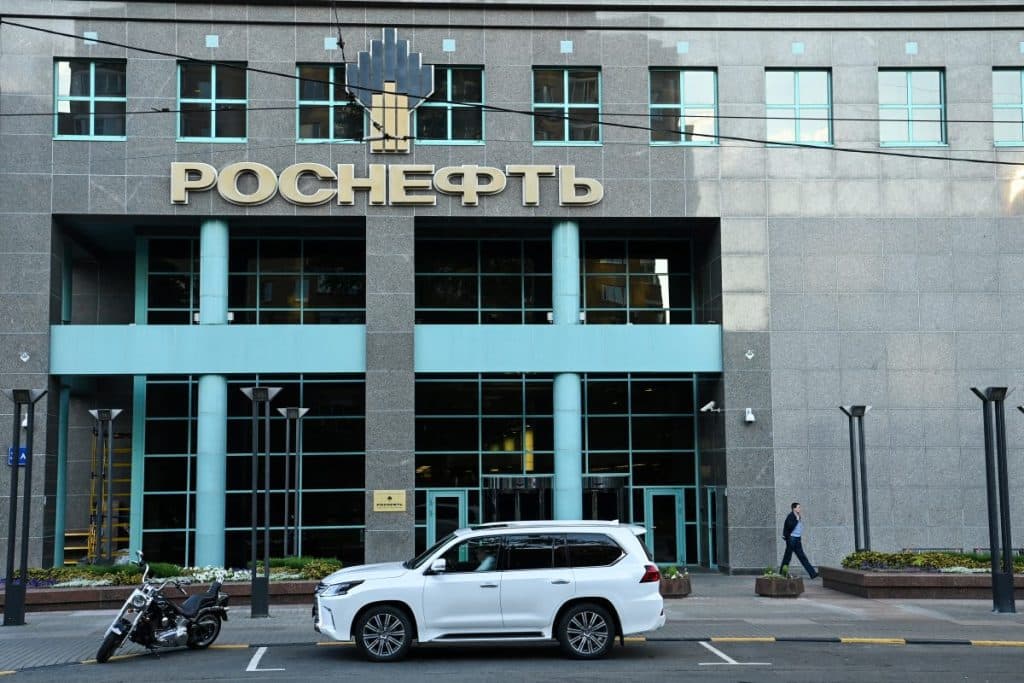Russia’s top oil exporter Rosneft has expanded its tanker leasing business to facilitate deliveries to customers in anticipation of tougher Western sanctions, three sources familiar with the matter said.
Rosneft produces more than 40 percent of the Russian oil it sold until now at the port of loading, which meant that the buyer had to search for tankers himself and bear the costs of transportation and insurance.
The situation has now changed as Western countries are preparing to impose sanctions on carriers and insurers working with Russian oil if its price exceeds a certain limit. It is not yet known how big he should be.
Due to the announcement of these sanctions, the buyers of Rosneft’s oil are now asking the company to take care of the delivery to the final destination and to take over the insurance and transportation costs, according to three well-informed sources.
Many of Rosneft’s clients do not have trading departments that handle things like shipping, and Rosneft’s offering of transportation services will help clients outside the sanctioned area avoid delays, traders explain.
A new direction
Since Western countries imposed sanctions on it for its invasion of Ukraine, Russia has increased its oil exports to Asia, Africa and South America.
From January to September, six times more Russian oil was shipped to Asia than in the same period last year, Refinitiv Eikon data and Reuters calculations showed.
In the first eight months of this year, India imported 13 times more Russian oil than in the same period last year, according to Reuters calculations based on data from Refinitiv Eikon, and in the period from May to July, Russia became the largest supplier of crude oil to China.
Significant quantities of oil and oil products still arrive from Russia and into the European Union, but Moscow will have to divert a quarter of its total oil exports from December, after the full EU embargo comes into effect.
New jobs for Rosnefteflot
To cover shipping costs for customers, Rosneft uses its subsidiary Rosnefteflot, which until now has been mainly engaged in operations such as towing, refueling and inspections.
Rosneft’s spokeswoman said that the company “has enough experience and is ready to find effective options for transporting its cargo in all, even very turbulent market conditions.”
She added that “the use of the resources of Rosnefteflot, which mainly deals with port services, will not be necessary in all cases”, alluding that such services can be provided by Rosneft itself.
A modest fleet
The Russian company chartered its first Suezmax ship with a carrying capacity of 140,000 tons in June of this year, for the shipment of Russian Urals oil from the Black Sea to India, according to Refinitiv Eikona ship tracking data.
Since then, the volume of transported cargo has been steadily increasing, and since the beginning of October, Rosneft has leased capacities for the transport of about one million tons, mainly through Rosnefteflot, according to data from commercial sources and Refinitiv Eikon.
That represents nearly 40 percent of the 2.5 million tons the Russian company planned to export in October, according to data from Refinitiv Eikon and traders.
Rosnefteflot has only five tankers, including two Aframaxes, according to its website, has chartered several ships on the open market, and often uses tankers from Russia’s state shipping company Sovcomflot, according to three sources.
Other tankers it hired delivered oil to India, Turkey, Spain, Italy, Greece and Cuba in the past months, according to sources confirming Refinitiv Eikon data.
Track N1 via Android apps | iPhone/iPad and social networks Twitter | Facebook | Instagram.

